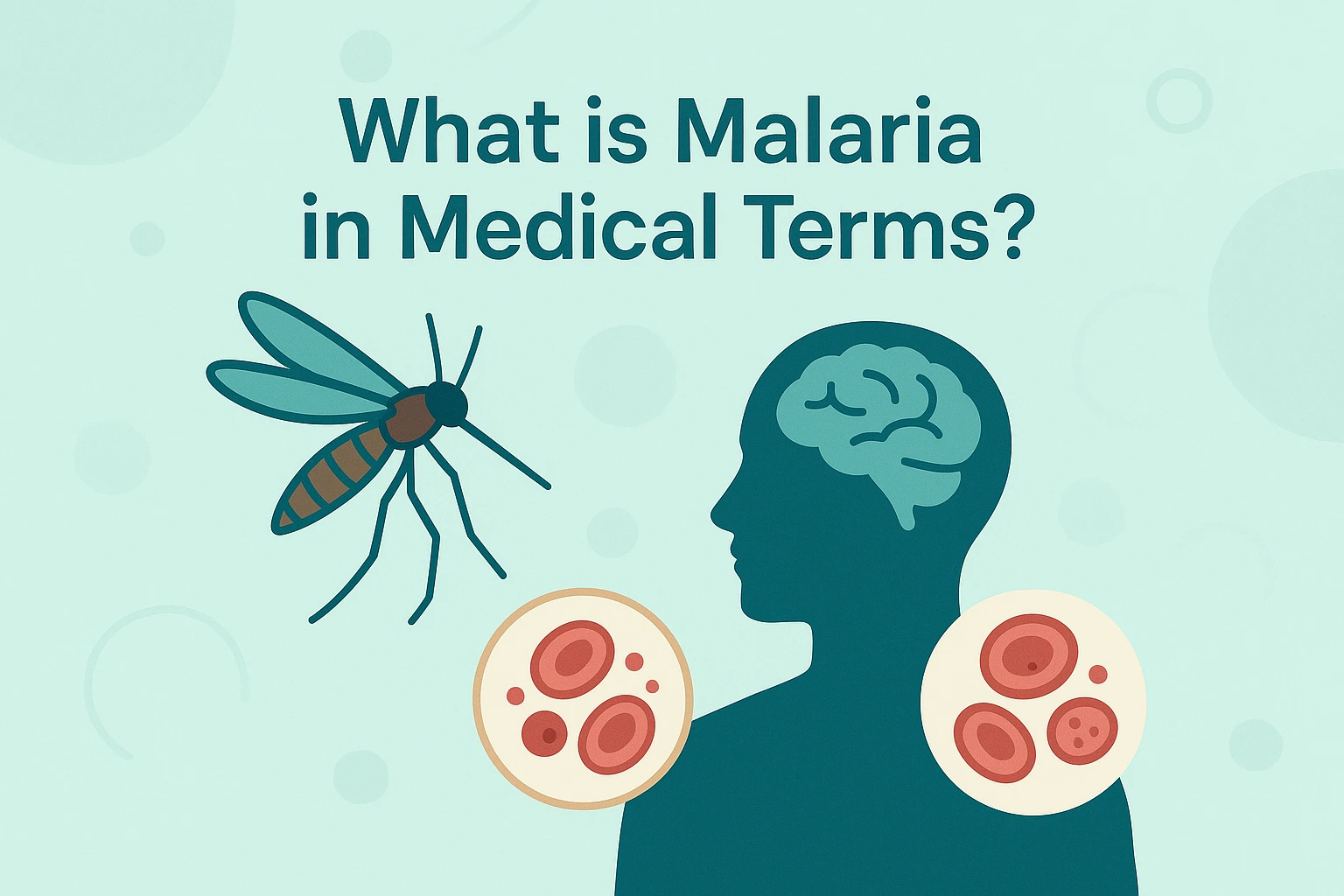Malaria is a life-threatening disease caused by Plasmodium parasites, which are transmitted to humans through the bites of infected Anopheles mosquitoes. Malaria primarily affects the liver and red blood cells, leading to symptoms such as fever, chills, headache, and fatigue. Without prompt treatment, malaria can progress rapidly and cause serious complications, including organ failure and death. Malaria is most commonly found in sub-Saharan Africa, parts of Asia, and Latin America, where it remains a major global health concern.
If you are in a malaria-endemic area and experience symptoms such as fever, chills, and fatigue, it’s essential to seek medical attention immediately. Early diagnosis and treatment can significantly improve outcomes and reduce the risk of complications, including death.

Types of Malaria
Malaria is caused by several species of the Plasmodium parasite, with each type producing different symptoms and levels of severity:
- Plasmodium falciparum: The most dangerous form of malaria, responsible for the majority of malaria-related deaths worldwide.
- Plasmodium vivax: The most widespread type, it can cause recurrent infections due to the parasite’s ability to remain dormant in the liver.
- Plasmodium ovale and Plasmodium malariae: Less common forms of malaria, but they can still cause significant health issues.
- Plasmodium knowlesi: A rare form of malaria, primarily found in Southeast Asia, that can cause severe illness in humans.
Symptoms of Malaria
The symptoms of malaria typically appear between 10 days and 4 weeks after being bitten by an infected mosquito, but they can also develop later in some cases. Common symptoms include:
- Fever and chills
- Headache, muscle aches, and fatigue
- Sweats and shivering
- Nausea, vomiting, and diarrhea
- Anemia (due to the destruction of red blood cells)
- Jaundice (yellowing of the skin and eyes in severe cases)
Malaria Causes and Risk Factors
Malaria is transmitted through the bite of an infected Anopheles mosquito, which carries the Plasmodium parasite. Risk factors for contracting malaria include:
- Living or traveling to malaria-endemic areas, especially in sub-Saharan Africa, South Asia, and parts of Latin America.
- Lack of protective measures such as mosquito nets or insect repellent.
- Weak immune systems: Infants, young children, pregnant women, and travelers with no prior exposure to malaria are at higher risk.
- Environmental factors: Areas with standing water or tropical climates provide ideal breeding grounds for mosquitoes, increasing the risk of malaria transmission.
When to See a Doctor for Malaria?
Seek medical advice for possible malaria if: you experience severe symptoms like fainting, chest pain, or confusion. These symptoms may require immediate emergency care.
Related Terms for Malaria
FAQs for Malaria
When should I go to the ER for malaria?
If you experience severe symptoms like confusion, fainting, or chest pain, seek emergency care.
How does heat affect malaria risk?
High temperatures and humidity can increase mosquito activity, raising the risk of malaria in endemic areas.
What are some ways to reduce malaria risk?
Staying in well-screened areas and using insect repellent can help lower the risk of malaria.
